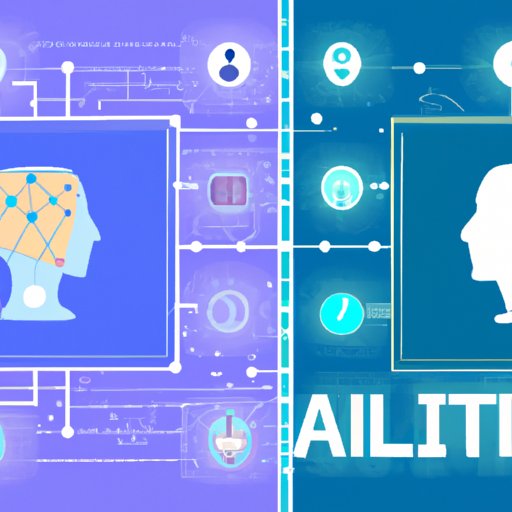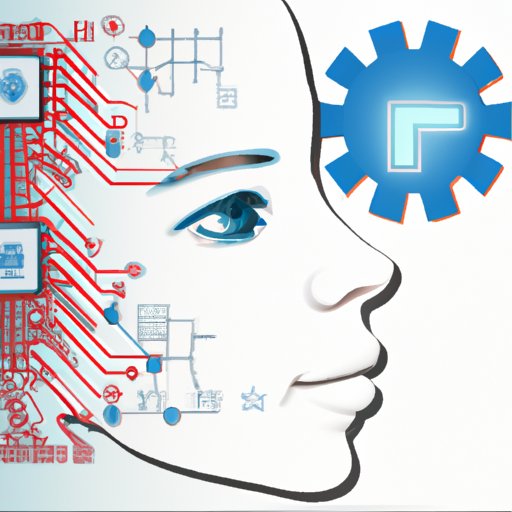Introduction
Artificial Intelligence (AI) is a branch of computer science that focuses on creating machines that can think and act like humans. The concept of AI has been around for decades, but it is only recently that advancements in technology have enabled us to begin exploring its potential impact on human cognition. AI has already begun to revolutionize many aspects of our lives, from healthcare to transportation, and this trend is expected to continue in the future.
Examining the Possibility of Machines Becoming Smarter than Humans
The idea of machines becoming smarter than humans is no longer just a far-fetched concept. In fact, researchers are now beginning to believe that this may be possible in the near future. Some experts even suggest that AI could eventually exceed the intelligence of humans, allowing them to make decisions and solve problems that would be too complex for humans to comprehend.
To explore this concept further, let’s first consider the feasibility of AI replacing human intellect. If machines are able to learn and process information faster than humans, they could potentially become more intelligent than us. This could lead to AI taking over certain tasks that require advanced decision making, such as medical diagnosis or legal advice. However, some experts argue that AI will never be able to replicate the level of empathy and intuition that humans possess, which is essential for certain jobs such as teaching and counseling.
On the other hand, if AI becomes more intelligent than humans, it could potentially have a huge impact on society. For example, AI could be used to automate mundane tasks, which would free up time for humans to focus on more creative pursuits. AI could also be used to improve public services, such as healthcare and education. However, there are some ethical concerns about giving machines the power to make decisions without any human input. This could potentially lead to unfair outcomes for certain groups of people, or even lead to machines having control over humans.

Investigating the Challenges in Developing AI as Intelligent as Humans
Despite the potential advantages of AI becoming smarter than humans, there are still many challenges that need to be overcome before this can become a reality. One of the main issues is the complexity of creating AI that is more intelligent than humans. Creating an AI system that can understand and process information as well as humans is extremely difficult and requires a deep understanding of cognitive processes. Additionally, AI systems need to be trained on large amounts of data, which is a time consuming and expensive process.
Furthermore, there are also ethical considerations when it comes to developing AI that is more intelligent than humans. If machines are given the power to make decisions, it is important that they are held accountable for their actions. Additionally, it is important to ensure that AI systems do not discriminate against certain individuals or groups. Finally, it is essential to ensure that AI does not take away jobs from humans or undermine human autonomy.
Conclusion
In conclusion, the possibility of AI becoming smarter than humans is an exciting prospect, but it is important to consider the implications of such a development. While machines may be able to process information faster than humans, there are still many challenges that need to be addressed before AI can reach the level of human intelligence. Additionally, there are also ethical considerations that need to be taken into account when developing AI systems that are more intelligent than humans.
Overall, the potential of AI becoming smarter than humans is something that needs to be explored further. As technology advances, it is likely that AI will become increasingly prevalent in our lives, and we must ensure that the development of AI is done responsibly and ethically. Only then can we ensure that AI is a force for good in society.
(Note: Is this article not meeting your expectations? Do you have knowledge or insights to share? Unlock new opportunities and expand your reach by joining our authors team. Click Registration to join us and share your expertise with our readers.)
